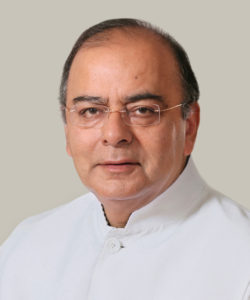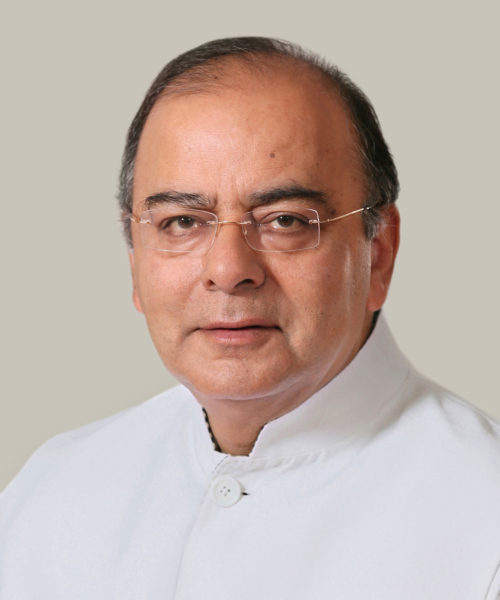New Delhi– Decks have been cleared for implementation of the biggest indirect tax reform since independence, with parliamentary approval to the GST as Rajya Sabha on Thursday passed the four enabling bills for its roll out, possibly from July 1.
The long-awaited four bills — Central Goods and Services Tax (GST) Bill, Integrated GST Bill, Compensation GST Bill and Union Territory GST Bill 2017 — were passed by the Rajya Sabha and returned to Lok Sabha, after a discussion of almost nine hours spread across two days. The Lok Sabha had passed the bills last week.
Talking to reporters after the bills were passed by parliament, Finance Minister Arun Jaitley said it was a “historic day.” He said it took almost 11 years to build a consensus on the roll out of GST.

He said the government is still looking at July 1 date for rolling out the new indirect tax regime.
“If any issues crop up, then the GST Council will address them.
“We are already in a transition phase. There will be some challenges because we are switching to a new regime. Some relaxation will be given in compliance,” he added.
Earlier, replying to the debate on the four bills in the Rajya Sabha, Jaitley said that the goods that are exempted from taxes at present will remain so once GST is implemented.
He also said there is provision of quarterly returns to make tax filing easier under the GST.
Noting that both the central and state governments are pooling their sovereignty to have this tax regime, Jaitley noted that India, despite being one political entity, had remained different economic entities with states having different taxes.
“GST is the only tax which is simultaneously levied by Centre and states,” he said.
Jaitley said that the Council has decided that the petroleum products though they have been included under GST, will remain zero rated as of now.
“The Council decided that we will take up the issue of petroleum products in a year after implementation of GST. Today, constitutionally, petroleum products are under GST, but will be zero rated. So once Council decides it can be taxed under GST, we won’t need to amend the Constitution,” he said.
On demands of change in the structure of Goods and Services Tax Network (GSTN) that is creating the information technology backbone for the new indirect tax regime, Jaitley said that the shareholding pattern has been set after detailed discussions to ensure the flexibility of the company.
“Government can acquire 1-2 per cent more shares in GSTN, but not sure if the flexibility will remain. We have not felt the need of altering the arrangement. The management structure created has to face penal consequences if any information is leaked,” he said.
The Central government owns 24.5 per cent stake in GSTN, state governments own another 24.5 per cent, while the HDFC, NSE Strategic Investment Corporation, HDFC Bank and ICICI Bank own 10 per cent each.
LIC Finance holds 11 per cent stake in GSTN, according to the Registrar of Companies (RoC) filings, obtained by IANS from business research platform Tofler.
Taking part in the debate in the upper house, Sharad Yadav of the Janata Dal-United said that “GST should be made easy, so people do not have any tax related problems”.
Praful Patel of the Nationalist Congress Party expressed apprehension over the proposed “harsh punishments” in the GST Bills.
Sitaram Yechury of the Communist Party of India-Marxist expressed his unhappiness over GST having been brought in the Rajya Sabha as a Finance Bill. He was supported by Jairam Ramesh of Congress and D. Raja of the Communist Party of India.
“Parliament cannot be ignored,” he said, suggesting that GST should be audited by the Comptroller and Auditor General.
The four GST-related bills were passed after amendments moved by by Trinamool Congress MP Derek O’ Brien and CPI-M leader Tapan Sen were negatived after division.
Ramesh did not press his amendments saying that he was following advice of former Prime Minister Manmohan Singh to maintain consensus.
There also have been demands from some stakeholders to delay implementation of GST.
All India Tax Advocates’ Forum (AITAF) President M.K. Gandhi said in a statement on Thursday that the new tax roll-out should be delayed by at least a quarter as industry, especially small time assesees, would require time to prepare themselves. (IANS)







